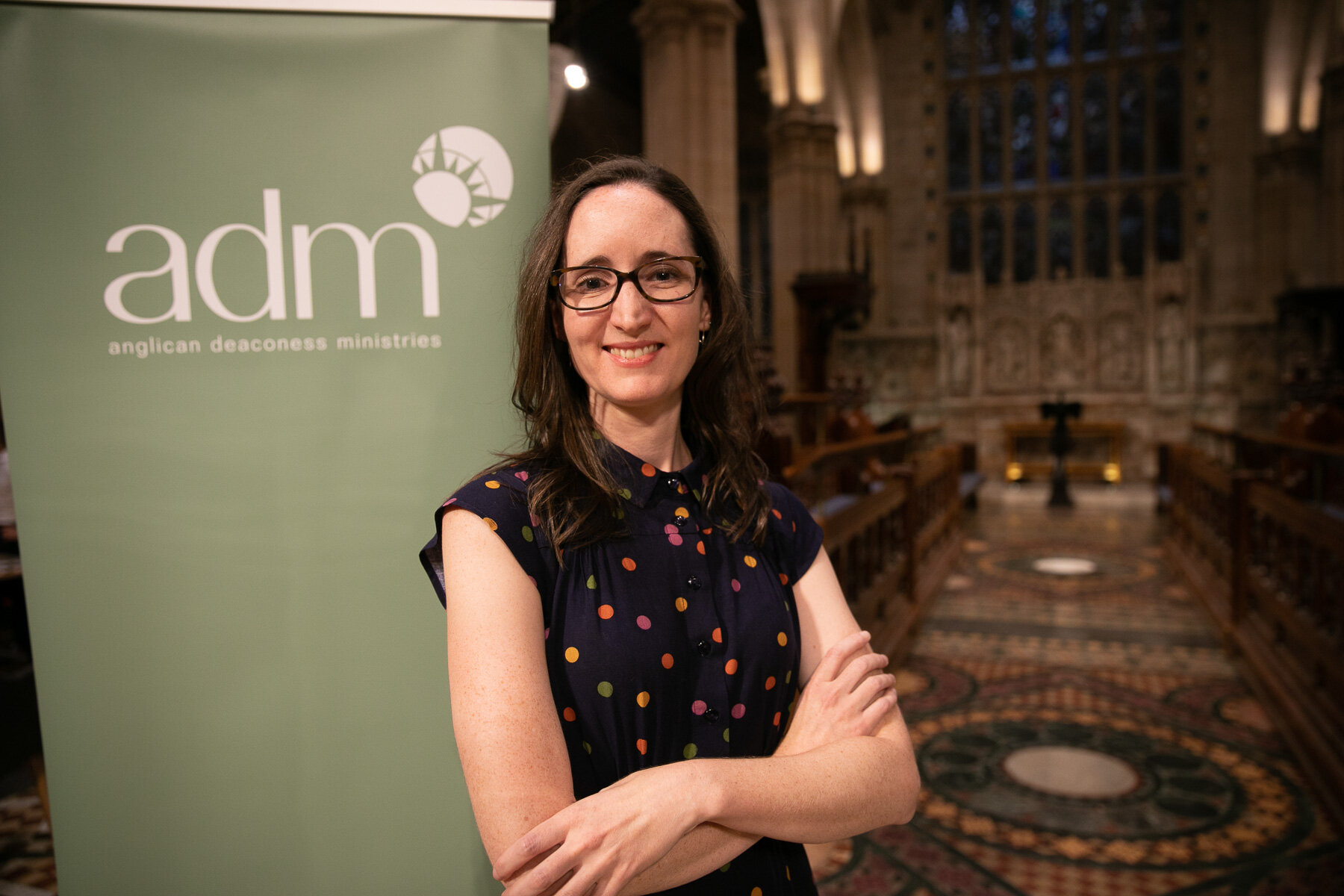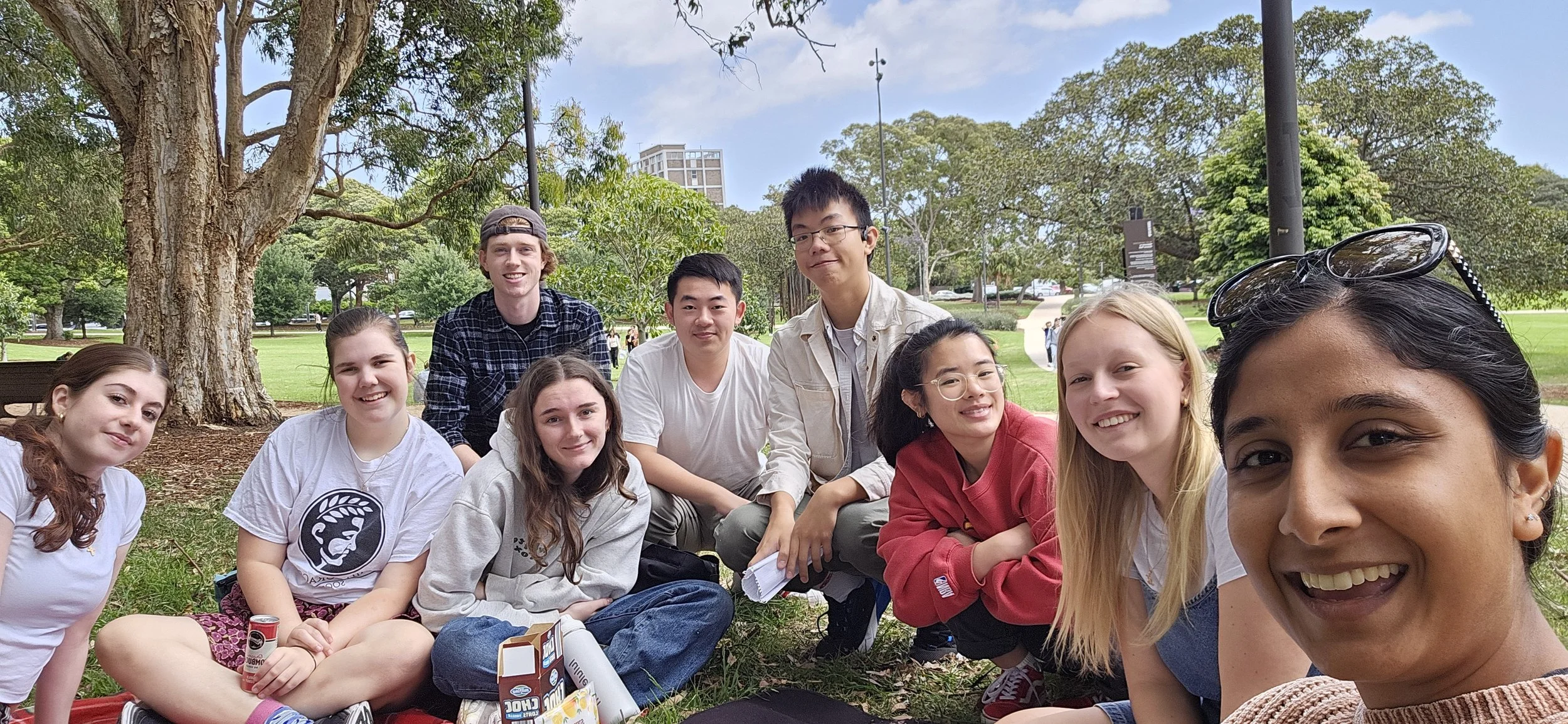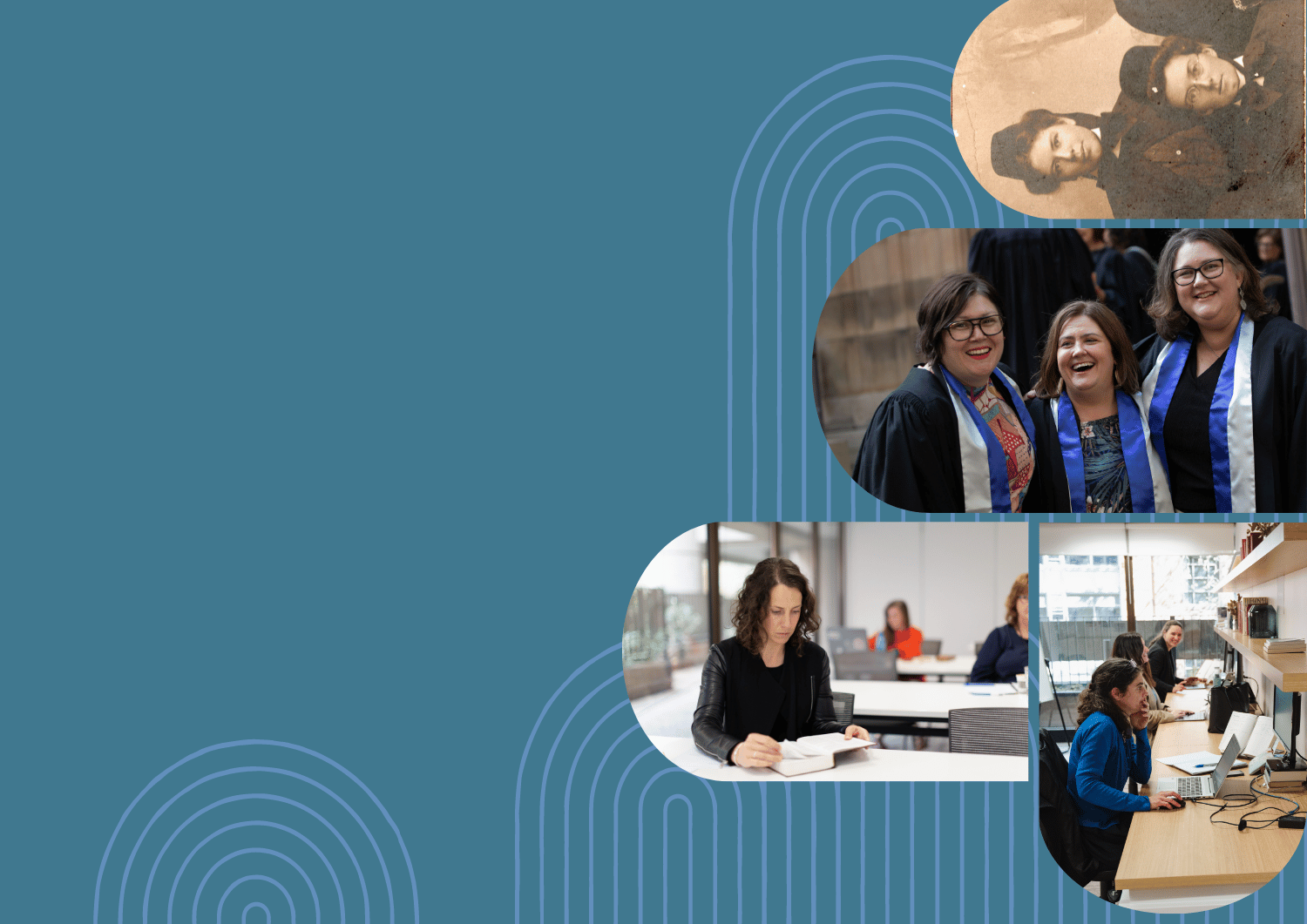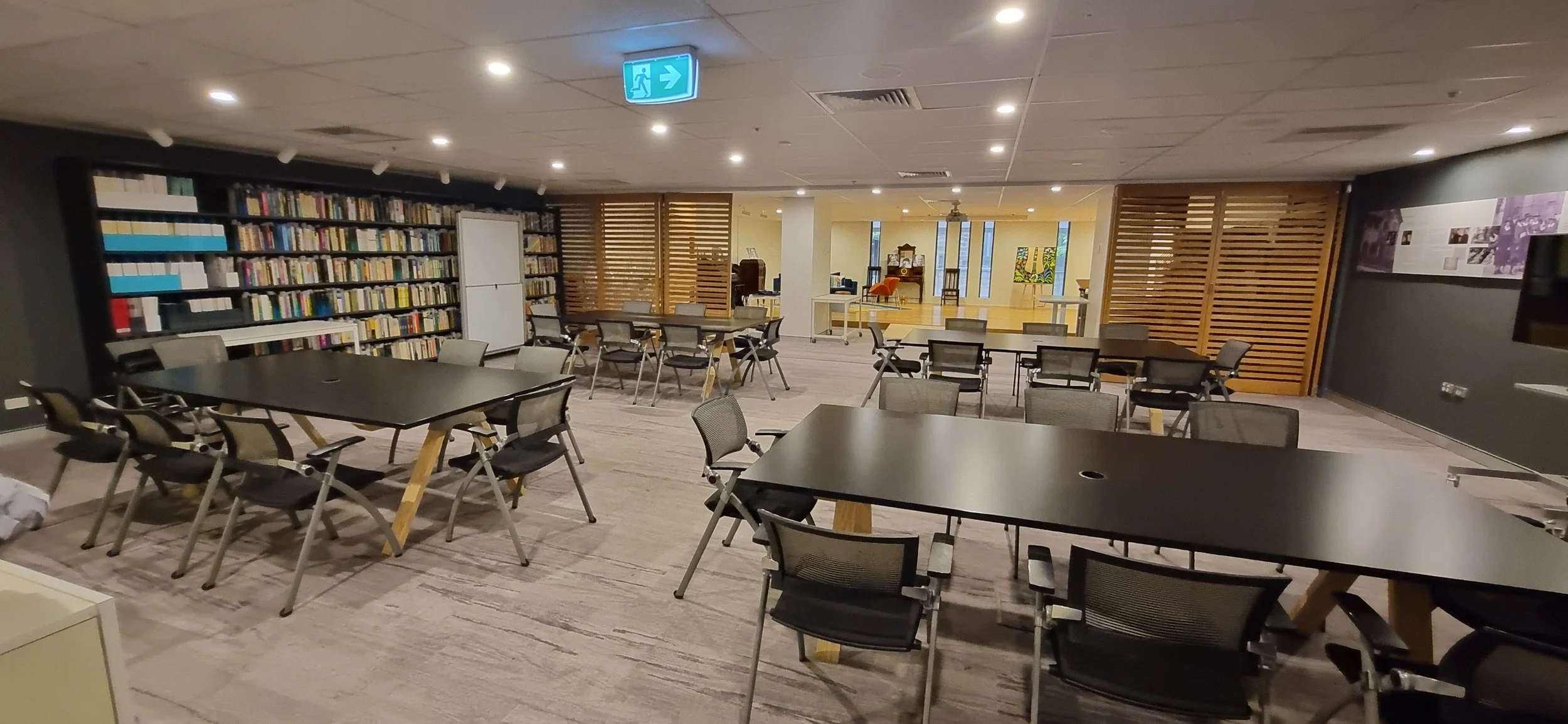Then Came a Pandemic:
“The Pleasures of Pessimism” continued with Dr Natasha Moore
Global decay, nuclear war and Zombie apocalypses aren’t exactly the stuff of cheery evening discussions. But Dr Natasha Moore’s address for ADM’s fourth Annual Public Lecture on 7 November 2019 at St Andrews Cathedral provided an insightful, far-reaching and even optimistic guide through what she called, “The Pleasures of Pessimism: On hope, culture and the end of the world”, which you can read about or watch here.
Then came a pandemic. And we at ADM wondered how the new isolation affected Dr Moore’s perspective. Since she had heaps of time on her hands, we caught up with her—from a distance (email actually)—with some follow up questions:
The books Natasha finds herself in the middle of simultaneously in week 8 of iso.
ADM: In November 2019, you framed your ADM Annual Public Lecture, “The Pleasures of Pessimism” around the premise that many of us have “a creeping sense that things are getting worse”. Then a pandemic hit. How’d you know?
Natasha: I just know things, guys.
“One of the things I’ve been trying to do—after more than two decades as a Christian!—is learning to pray, to be more sincere and constant and brave in prayer. Increased solitude is good for that, though I’ve also been pursuing it alongside others, by reading and zooming. ”
More seriously, though, I think a lot of what I wanted to say around pessimism and optimism hinged on the idea that, increasingly, we treat everything like a crisis, even stuff that’s really not. Our thinking habits, our habits of consuming news, our filter for understanding the world around us, have all become quite apocalyptic. So finding ourselves right in the middle of an immediate, incontrovertible crisis has for me been a chance to go back over some of my arguments from 2019 and see if they still hold!
ADM: So from what you’ve seen (sheltered in place) what’s winning the attention of the general Australian culture: optimism or pessimism (or a variation of both)? Or do we need to redefine these terms during days of social distancing?
Natasha: Honestly, I have felt so much pride in and gratitude for my country during all this. It’s been horrifying to see how things have unfolded in so many other countries, and I know that it’s not only to our “credit” that things have not been worse here (we have some natural/unearned advantages in all this). But amid all the things we still have to strenuously disagree on throughout this, it really has felt to me like we’re all “in it together”, especially as every covid-era ad reminds us while nudging us to continue buying their products!
This is true globally as well. I don’t think there’s been a time since World War II when pretty much everyone on the planet has been going through the same experience at the same time (with a colossal caveat on that first “same”, given the inequalities and hardships that the pandemic has exacerbated in so. many. ways). This isn’t really an answer to your question; we’re seeing both optimism and pessimism, both of them in some respects well-founded and in others less so! - but in spite of everything, so far at least, that solidarity has been my primary impression through all this.
ADM: What’s been ‘redemptive’ for you personally during this time at home?
Natasha: When everything hit the fan, for me it was at a time that felt maybe even more over-scheduled and unmanageable than usual. As a hardcore introvert, I’ve long lived by the “best plans are cancelled plans” mantra, and everything suddenly being cancelled—though it’s the by-product of something so awful —has been quite clarifying for me in terms of understanding how I function best and what’s important and blah blah all those things lots of people are saying!! One of the things I’ve been trying to do—after more than two decades as a Christian!—is learning to pray, to be more sincere and constant and brave in prayer. Increased solitude is good for that, though I’ve also been pursuing it alongside others, by reading and zooming.
Natasha Moore on the evening when she delivered the 2019 ADM Public Lecure
ADM: You ended your November lecture by wishing us “the pessimism to look unflinchingly at the problems, and the optimism to dig for the opportunities hiding beneath them.” Is it safe to say that it’s become too easy to look unflinchingly at today’s problems, given how the daily news seems to bombard us with such uncertainty? And if so, how do we ‘dig for opportunities’ during a global pandemic (or any other collective crisis)? Any new insights for—or about—the church in this time?
Natasha: It seems to me that a lot of people are attempting this at the moment - wondering out loud how we might leverage this disruption of “business as usual” to create lasting change in the way we do things, from the personal way up to the social/structural.
“Crisis can be a catalyst. That might be social or political; it might be vocational, or relational; it might be existential. Church communities are well placed to support people embracing the last of those, and to invite them to lean into the discomfort of existential questions. As the psalmist puts it, to “taste and see that the Lord is good”! ”
Maybe uncharacteristically for me, I don’t feel so optimistic about that; it seems to me that the pull of the status quo is very strong, and that we collectively gravitate towards “normal” as soon as we’re given the chance (for better and for worse). Which isn’t to say we shouldn’t try, and I do hope that this crisis at least stretches our imaginations in positive ways when it comes to our life together. Eventually, that should filter through to genuine (though I suspect not very predictable) change.
That being said, I think all this does present many of us with the opportunity for more deliberateness in our lives. “Apocalypse” is “revelation”; among other things, it reveals us to ourselves. Crisis can be a catalyst. That might be social or political; it might be vocational, or relational; it might be existential. Church communities are well placed to support people embracing the last of those, and to invite them to lean into the discomfort of existential questions. As the psalmist puts it, to “taste and see that the Lord is good”!
Dr Moore is also a host on CPX’s LIFE & FAITH podcast; her most recent episode is an “Ode to Nurses”, in honour of the 200th birth of Florence Nightingale (who once studied with deaconesses – just saying). Listen here.













The intersection of faith and mental health: Miriam’s story
If there’s anyone qualified to prepare a series of workshops to equip pastoral caregivers, ministry staff and everyday Christians to better serve the mental health needs of their churches and communities, it’s Miriam. Yet if it weren’t for her six-month period as an ADM Fellow, the workshops simply wouldn’t exist.